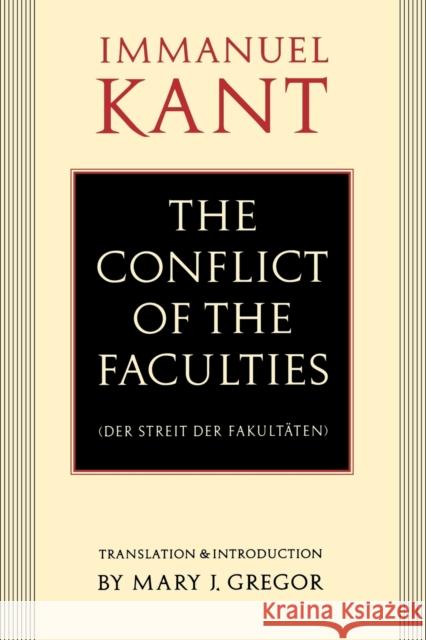The Conflict of the Faculties (Der Streit der Fakultaten) » książka
The Conflict of the Faculties (Der Streit der Fakultaten)
ISBN-13: 9780803277755 / Angielski / Miękka / 1992 / 217 str.
It is in the interest of the totalitarian state that subjects not think for themselves, much less confer about their thinking. Writing under the hostile watch of the Prussian censorship, Immanuel Kant dared to argue the need for open argument, in the university if nowhere else. In this heroic criticism of repression, first published in 1798, he anticipated the crises that endanger the free expression of ideas in the name of national policy. Composed of three sections written at different times, The Conflict of the Faculties dwells on the eternal combat between the "lower" faculty of philosophy, which is answerable only to individual reason, and the faculties of theology, law, and medicine, which get "higher" precedence in the world of affairs and whose teachings and practices are of interest to the government. Kant makes clear, for example, the close alliance between the theological faculty and the government that sanctions its teachings and can resort to force and censorship. All the more vital and precious, then, the faculty of philosophy, which encourages independent thought before action. The first section, "The Conflict of the Philosophy Faculty with the Theology Faculty," is essentially a vindication of the right of the philosophical faculty to freedom of expression. In the other sections the philosopher takes a long and penetrating look at medicine and law, the one preserving the physical "temple" and the other regulating its actions. Mary J. Gregor is a professor of philosophy at San Diego State University and the author of Laws of Freedom (1963).











